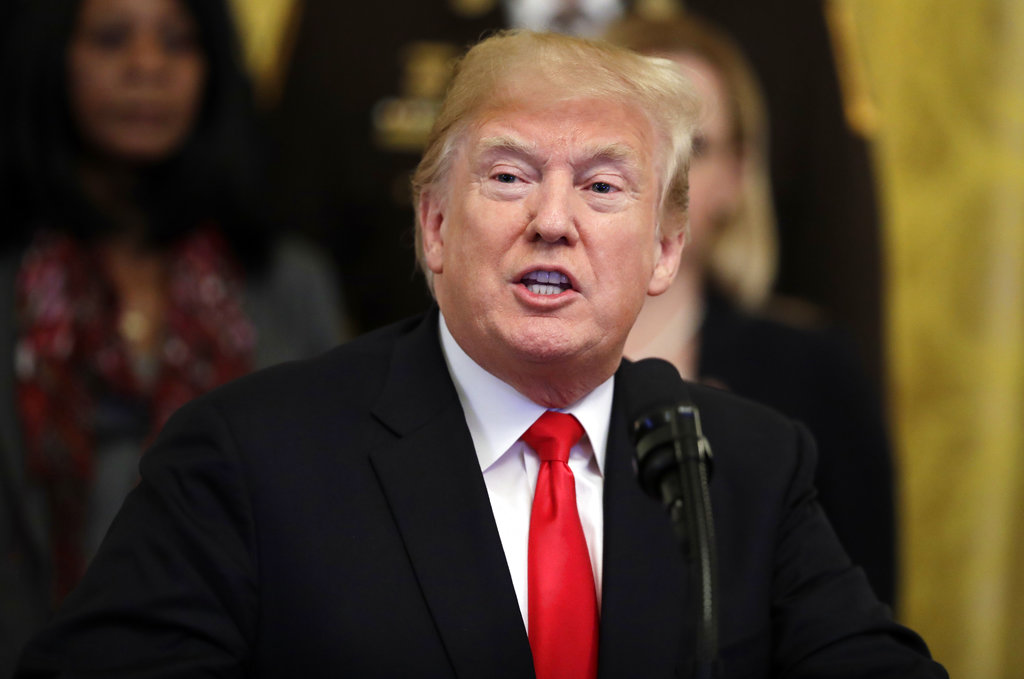The US is learnt to have granted a conditional waiver to India and seven other countries that permits them to buy crude oil from Iran after sanctions against Tehran take effect from next week.
The rupee surged by 100 paise to close at 72.45 against the US dollar – the Indian currency’s biggest single-day gain in five years as global crude prices fell and currency traders factored in the prospect that the US would grant the waiver from sanctions to India.
Sources said the waiver had been signed by President Donald Trump. Oil ministry officials said they would prefer to comment only after the US government officially conveyed its decision. The list of the countries that will get the waivers is expected to be released officially on Monday.
India is a major importer of Iranian oil. Of the 220.4 million tonnes of crude oil imported by India in 2017-18, about 9.4 per cent came from Iran.
Reports indicated that the US would lay down a condition that the countries that are granted the waiver should pay for the oil in local currency and park the money in escrow accounts. This means the funds would not directly go to Iran, which can only use it to buy food, medicines or other goods that do not face the brunt of the economic sanctions.
The waivers are only temporary and the US will expect the countries that get them to gradually reduce oil imports from Iran in the months ahead, according to reports quoting US administration officials. It is not immediately clear if there will be a cap on the volume of oil that the countries granted waivers will be allowed to import.
US officials have said that the Trump administration will also ask these nations to reduce trade in goods with Iran that are not covered by the sanctions.
Sanjiv Singh, chairman of Indian Oil Corporation, said he hoped to be able to import oil from Iran since it has contracts to import 9 million tonnes of oil in 2018-19. If curbs are placed on these imports, IOC will find it hard to find alternative sources with the likelihood of having to pay out more as global oil prices could be impacted by the sanctions.
“I cannot say there will be a waiver or no waiver, but definitely we are hopeful that we will have some sort of clearance to continue with Iran. We need to see what channels are open,” he said regarding the payment mechanism.
A waiver will come as a big relief to Indian Oil and MRPL, the two largest Iranian oil consumers. The two firms together have placed orders for 1.25 million tonnes of crude oil from Iran in November.
Officials said India could pay for Iranian oil in rupees and euros after the sanctions take effect.
India has already granted permission to Bank Pasargad, the Tehran-based private lender, to open a branch in Mumbai, through which payments could be made.
The presence of Iranian bank would help both the parties as it would enable rupee trading as exporters can make payment in that bank which could be adjusted against imports.
India may also route rupee payments through UCO Bank as it did in 2012 when Iran faced similar sanctions from the US and European nations. Uco is the preferred bank as it has no dealings with the US and, thus, cannot be sanctioned.
Under the payment mechanism then, Iran used the rupee payments for oil to pay for its imports of rice, drugs, and other products from India. Not all of the money was used and a part of the proceeds were parked with the Indian bank till the sanctions were lifted.
If Euro payments are allowed, then India could use Turkish, German and Italian banks to transfer Euros into an escrow account.
“India had earlier been given the option to use Turkey’s Halkbank, Europaeisch-Iranische Handelsbank of Germany and Italian Central bank to pay up their dues. We are in talks with European banks to see what can be worked out now,” said officials.
Indian refiners prefer Iranian crude owing to better pricing and credit terms. The three-month credit period offered by Iran results in lower working capital for domestic Indian refiners leading to lower borrowings and increased floating money. Also, Iranian crude bodes well for Indian refiners as it is usually sold at a discount of up to $2-$4 per barrel compared with other Middle Eastern crude oil grades.
Besides blocking of banking channels from November, the absence of payment mechanism may pose a challenge to the transportation of the oil as Iranian crude is bought on a CIF basis and shipped on Iranian tankers.
Under Cost, Insurance and Freight (CIF) mode of shipping, the seller assumes the responsibility of transportation and insurance. The liability and costs associated with successful transit are paid by the seller until the goods are received by the buyer.











